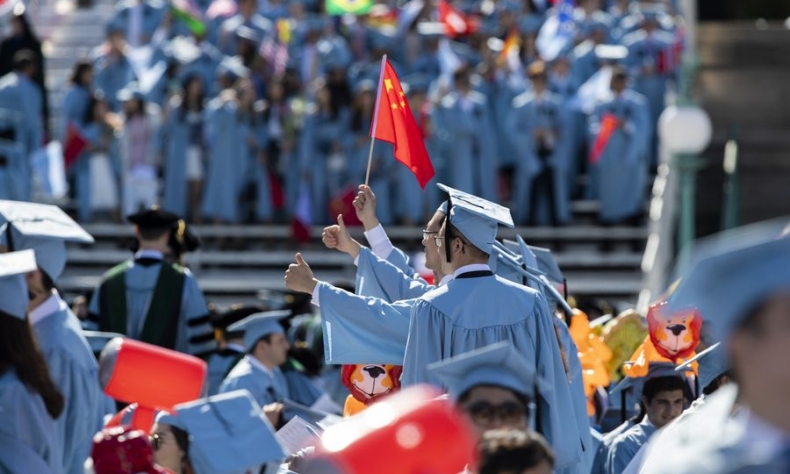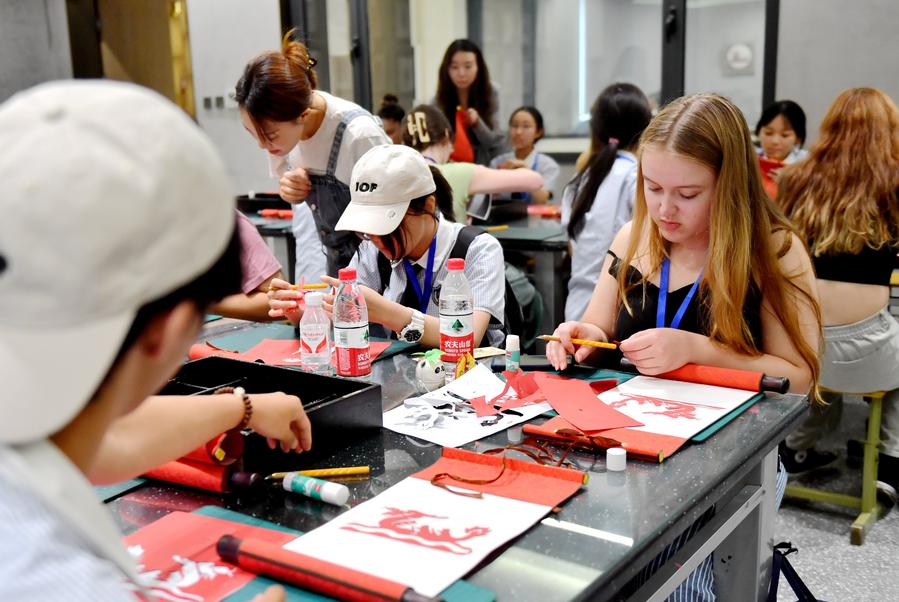U.S. Makes Major Mistake by Threatening Chinese Students

The U.S. loses first when it restricts the opportunities for Chinese students to study in the country.
The U.S. is home to many of the world’s most prestigious colleges and universities. One reason for that success is that they have consistently opened their doors to aspiring scholars from all corners of the globe. Tapping into the knowledge of some of the brightest minds while also availing themselves of state-of-the-art learning environments has been the dream of millions of young men and women.
The numbers do not lie: Students from all corners of the world want to study in the U.S. As just one example, consider the number of students from China who have chosen to study in America. According to one estimate, close to 4-million Chinese were students at a U.S. college or university between 2012 and 2024.
But look deeper, and there is a problem: The numbers are in decline. There were an estimated 372,000 Chinese students in the U.S. during the 2019-2020 academic year, a figure that had dropped by almost 100,000 just four years later. Whether those students chose to stay home or to go to another country is not the point. What is important to remember is that they shunned the U.S. And that means their short- and long-term successes will take place elsewhere. America loses in that scenario.
Sadly, the current U.S. government appears eager to let even more Chinese students turn away from America. In a remarkably arrogant statement, the Department of State announced about two weeks ago that it would “aggressively” seek to revoke the visas of Chinese students currently in the U.S. By extension, the federal government would also try to limit the number of visas available to future students. The rationale was that students who had ties to the Communist Party of China or who were interested in cutting-edge disciplines would be told to go elsewhere.
Think about that for a minute: The government was sending a message that said students should be punished for either their political affiliation or interested area of study. Viewed another way, these students were being judged as undesirable even though they had broken no law nor done anything to indicate animus toward the U.S.

During the recent phone call President Trump asked for with President Xi Jinping, the topic of visas for Chinese students came up. President Trump could have—in fact, should have—taken the opportunity to acknowledge that targeting Chinese students not only violated the temporary trade agreement the two nations reached last month but also ran afoul of America’s long history of welcoming international scholars. He should have noted the positive effects of people-to-people exchanges.
Not surprisingly, he would not take the high road.
Instead, no progress appears to have been made, meaning that Chinese students remain in limbo. Leaving the country for any reason could lead to being denied re-entry at a later date. Remaining at their current U.S. institution could mean receiving a phone call one day with a ‘get out now’ message included. Years of studying in classrooms and labs could come to an end with no certainty as to what the next move will be.
Chinese students who say they are afraid ought to be. As if being subjected to a psychological experiment, they are trying to make the right decision without any set of instructions.
Let’s not mince words here: What the U.S. is doing is indicative of a country operating with fear, not with strength. The U.S. president unleashed the “China Initiative” during his first term, a move he claimed was necessary because he insisted Chinese-born scholars were secretly working to aid China’s development. While the accusations of espionage amounted to nothing, the damage was done: Many Chinese scholars opted to head home or to another country to continue their teaching and research. In addition, the fiery rhetoric suggesting Chinese living in the U.S. could not be trusted led to a rash of anti-China and anti-Asia attacks across the country.

Fast forward to 2025, and the president’s disdain for China is again on display. He appears willing to undermine the global prestige of the entire U.S. higher education system in order to affirm that he considers China a threat to America’s interests. Likewise, he risks lasting damage to a roughly five-decade era of cooperation between American and Chinese scholars that, among other benefits, has seen Chinese researchers being the most frequent research partners for their American counterparts.
China often speaks of win-win cooperation. The many partnerships between American and Chinese scholars are a clear example of such cooperation.
The White House seems interested in lose-lose non-cooperation. The U.S. loses first when it restricts the opportunities for Chinese students to study in the country. It loses again when it seeks to kick current students and scholars out of the country.
While there is no way to quantify the damage from such ridiculous policies, there is no doubt that more and more Chinese students and researchers in the years to come will cross the U.S. off the list of places they want to go.
Do not tell that to the current administration, which seems determined to make one mistake after another as it navigates the complex U.S.-China relationship.
The opinions expressed in this article are solely those of the author and do not necessarily reflect the views of Robert Morris University or China Focus.
 Facebook
Facebook
 Twitter
Twitter
 Linkedin
Linkedin
 Google +
Google +







